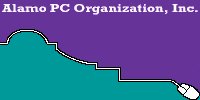 |
Search Hints and Tips
There are hundreds of search engines on the Internet. We suggest that
you select two or three and become an expert at using them. We have found
that we have two primary search “attitudes”: browsing and focusing.
When we browse we are usually looking for general information about
broad topics. What can we find on the Internet about the environment? Insurance?
Quilting? For this type of search, we turn first to the resources, or hierarchical
indices. These arrange topics into broad categories. If we’re looking for
information about water pollution, for example, a hierarchy might be arranged
as
environment–pollution–water pollution–rivers. This type of
index has several advantages for general searches. They typically only
list web sites, as opposed to individual web pages, so we
end up with a manageable list to work with. Also, they often have a human
intelligence guiding the categorizations, so the selections tend to be
rationale. When we are doing a browse search, we turn to these resource
lists, for example:
The World-Wide Web Virtual
Library: Subject Catalogue
TradeWave Galaxy
American
Universities
When we conduct a focused search, we are looking for a very specific
piece of information. When were grizzly bears added to the endangered species
act? Who is the president of Zambia? Is there a recipe for fudge brownies?
In these types of searches, we will turn to search engines that use some
form of Boolean logic to help us find exactly
the information we need. The search engines we turn to most often are:
The Lycos Home Page:
Hunting WWW Information
Excite
WebCrawler Searching
HotBot
Every search engine has its own operating instructions. Here
are some search terms that you may encounter:
For more detailed information on search query formats Htgrep
Query Formats
|


